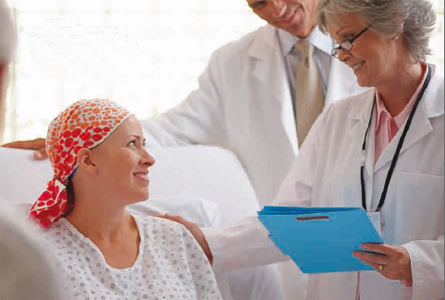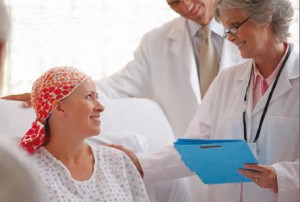
 They say hindsight is 20/20, and that’s never been more true then when I look back on my cancer journey. There are so many things I wish I’d known back then! It’s a blessing, however, to be able to share what I learned with others just starting their journeys. If what I now know can help you, it makes it all worth it!
They say hindsight is 20/20, and that’s never been more true then when I look back on my cancer journey. There are so many things I wish I’d known back then! It’s a blessing, however, to be able to share what I learned with others just starting their journeys. If what I now know can help you, it makes it all worth it!
1. Cancer treatments affect your whole body. Most of us worry about losing our hair, or feeling sick to our stomachs, but trust me, cancer treatments like chemotherapy and radiation can affect your whole body. Your appetite, your skin, your energy levels, and even your emotions can all be thrown off kilter. Get help early-even with the grocery shopping-and learning to be gentle with yourself.
2. Put yourself first. Many of us have work, family, and community commitments. When you’re diagnosed with cancer, you absolutely must put yourself first. Your medical care, home care, and emotional care must become your priorities, so you can get well.
3. Skin care is extremely important. Use lukewarm, not hot, water, and wash gently, patting dry. Moisturize moisturize moisturize every chance you get, and protect from the sun with hats, gloves, and long sleeves. Especially if you have scars, like I did, extra care is important!
4. Most personal care products are too harsh! Don’t be surprised if your regular soap, body wash, shave gel, makeup, and other products suddenly start to irritate and burn your skin. Many contain harsh chemicals and even potentially carcinogenic ingredients. When caring for my father during his battle with cancer, I bought him an expensive face cream that burned his skin. I wish I would have known! Now I read labels and buy only safe products.
5. Chemo rashes are not the same as acne. Many chemotherapy drugs can cause an acne-like rash, but this is not the same as regular acne. If you use harsh acne medications, you could make the situation worse, possibly even permanently scarring your skin. Try more natural remedies like soothing chamomile and water, an oatmeal paste on your face for 10 minutes, or an organic clay facial. Above all, be gentle!
6. Shop for a wig before you lose your hair. This is the best way to match your natural hair to your wig. If you wait until after your hair is gone, it will be harder to make it look the same.
7. You can relieve side effects. My father experienced hand and foot syndrome, and I found him one day just sitting in bed with his hands up, suffering. Please don’t ever do that! There are always things that can help. Ask your doctor and check online. (I have some great tips on my blog and in my book!) Pain only delays your recovery.
8. Choose the right kind of massage therapist. Massage can be a huge blessing during treatment. It eases stress and can help reduce side effects. If you go to someone who doesn’t know what he or she is doing, however, you could increase your risk of developing lymphedema. There are new oncology estheticians out there who are specifically trained to work with cancer patients. Ask for credentials, then lay back and enjoy.
9. Cold helps reduce hair loss and nail damage. Recent research has shown that applying cold to your fingers and head can help reduce hair loss and nail damage. The cold slows the blood flow to these areas, which means less of the chemotherapy drug can affect them. Studies show it really works! Try the “Elasto-Gel” flexible glove (available on Amazon), and the “DigniCap” made by Dignitana of Lund in Sweden.
10. Acupuncture improves post-chemotherapy fatigue. If you’ve gone through chemo, you know how draining it is. Studies have shown that acupuncture can help reduce that bone-deep fatigue by 30 percent! I really could have used that extra help!
11. Just because treatments are over doesn’t mean it’s “over.” One of the most difficult transitions in my life was going from cancer patient to cancer survivor. Everyone around me thought I should be fine, but I wasn’t! I wish I had known that those feelings are completely normal. It takes time to process it all-get help, and be patient with yourself.
12. Helping others helps you. As you work to recover after your cancer treatments are over, try to find a way to help others. Share your story, talk to the newly diagnosed, or volunteer somehow in your community. Giving back helps you redefine your purpose, and get back to living.
Have you learned things from your cancer journey you’d like to share? Please tell us!
Photo courtesy the Nelly Guaman via Flickr.com.

